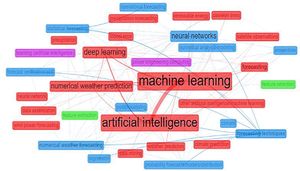The far-right Alternative for Germany (AfD) party finds itself at the center of multiple political controversies as it gears up for the upcoming Bundestag elections. With increasing legal challenges, significant financial backing, and debates surrounding its parliamentary roles, the party's future remains uncertain.
A recent statement from the German Institute for Human Rights has sparked discussions about the potential banning of the AfD. This initiative from cross-party Bundestag members aims to have the Federal Constitutional Court intervene. The institute's analysis pointed to the AfD's radicalization as evidence of its menace to the democratic order, stating, "the instrument of party prohibition was created from historical experience for situations such as the current one." This analysis, as reported by Deutschlandfunk, echoes sentiments previously expressed back in June 2023, before the situation surrounding the party escalated.
Despite these developments, skepticism abounds. Federal Chancellor Olaf Scholz has publicly opposed the ban, cautioning against potential repercussions like the martyrdom effect—where prohibiting the party may bolster its support. Scholz, along with other experts and political figures, emphasizes the long and uncertain process such legal actions might entail.
While some support banning the party due to its increasingly aggressive rhetoric against those who do not fit its worldview, advocates for caution highlight the possible backlash. Bundestag Vice President Katrin Göring-Eckardt from the Greens has supported the notion of acting before the next federal elections, insisting it is the Bundestag's responsibility to protect democracy against radicalism.
On another front, the AfD is actively seeking to assert influence within governmental structures. Specifically, Björn Höcke, the party's leader in Thuringia, has demanded representation on the parliamentary control commission overseeing domestic intelligence services. He proposed a package deal where the AfD would allow other parties to appoint representatives if they received votes for the vice-presidency and committees overseeing judicial appointments. This reflects the AfD’s attempts to navigate its role as the strongest opposition faction.
Yet, this request ignites conflict; many lawmakers see the idea of placing an AfD representative within the intelligence oversight as untenable. The party’s candidate, Jörg Prophet, faces sharp criticism due to his controversial past comments equaling the guards of Nazi concentration camps with their liberators. Political leaders from the Left and SPD have declared his candidacy unacceptable, especially so close to the 80th anniversary of Auschwitz's liberation.
Prophet's history has raised alarms among leading institutions dedicated to Holocaust remembrance. The director of the Buchenwald and Mittelbau-Dora memorials criticized appointing someone with Prophet's views, stating it would send the wrong signal about the condition of memory culture within the country.
Economically, the AfD's fortunes have recently received a major boost. Winfried Stöcker, a millionaire from northern Germany, donated 1.5 million euros to the party, marking its largest individual donation ever. According to LobbyControl, the presence of such wealthy backers indicates the troubling mainstream acceptance of this extreme-right party. Stöcker has publicly voiced his dissatisfaction with the German government, calling it a "dictatorship of opinion" and criticizing various policies as part of what he sees as nonsensical trends.
Political analysts warn about the ramifications of this shift, asserting it could pave the way for increased influence of the affluent over party politics. The funding from figures like Stöcker may complicate criticism against the AfD’s policies and actions, as maintaining financial independence may become increasingly difficult for parties competing with the financial clout of their rivals.
While the AfD celebrates this financial windfall, it simultaneously faces operational challenges. Recently, Bild and Rheinische Post reported the closure of the AfD's bank accounts across various branches, including those affiliated with the Düsseldorf union. The party views this action as systematic discrimination, claiming banks are targeting them based on ideological motives. This has compelled the AfD to seek out other banking options, such as turning to local savings banks, which are mandated to provide services to all citizens, including political parties.
The bank’s decision not to comment on the closures has heightened concerns surrounding freedom of association and the financing of political activities. This scenario typifies the broader dilemma faced by political groups operating at the margins of acceptability within Germany’s political spectrum.
Overall, these developments raise serious questions about not just the AfD's future, but the broader polity's ability to grapple with its rise and normalization within German politics. With legal battles, financial empowerment, and political maneuvering, the party is poised for significant impacts as voters head to the polls.
This complex interplay of law, politics, and finance will certainly shape the narrative of the AfD as it transitions toward the next federal elections, reflecting the tensions within contemporary German society about identity, memory, and democracy.



